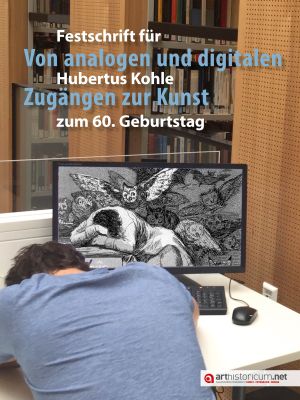
How to Cite
License

This work is licensed under a Creative Commons Attribution-NonCommercial 4.0 International License.
Identifiers
Published
Von analogen und digitalen Zugängen zur Kunst
Festschrift für Hubertus Kohle zum 60. Geburtstag
Hubertus Kohle is an art historian and professor who has made a name for himself in Germany especially with his research on the art of the European Enlightenment and the nineteenth century. He opened up his discipline early on to digital processes and concepts and has been committed to electronic publishing in Open Access for years. As one of the two directors of the renowned DFG Priority Programme "The Digital Image", he is currently also working on a multidisciplinary approach to the subject of the digital. On the occasion of his 60th birthday, he was honoured by numerous friends and academic companions with this commemorative publication, the content of which ties in with the focal points of his work - from the analogue beginnings dedicated to the art of the Age of Enlightenment to the current field of "digital art history". This commemorative volume is understood as an experimental online publication that was presented first to the birthday celebrant in a purely virtual version and is now also available as e-book.






